Most people have a bucket list and for most African trekkers, the term “Big Five” refers to the animals you hope to see from an open-topped safari vehicle on an African plain. The term “Big Five”, however, actually originally referred to the difficulty in the hunting, not seeing, of the lion, leopard, rhino, elephant and African buffalo. Recognised as dangerous, these five large African mammals remain a feat to be conquered by trophy hunters.
There are many large national parks across Africa accessed through tour companies, but if you are based in the South African cape, the Inverdoorn Private Game Reserve is one of the most accessible for solo traveller groups. During a visit, Irish Country Living sat down in this oasis with Storm de Lange, the general manager of the property, to talk about conservation and escaping to the desert.
Farmed for decades by a French couple, the lands after being transferred to their sons, were purchased in 2018 by Searl Derman, an avid conservationist and owner of the Aquila Collection of safari experiences.
Although based in one of the most arid regions of South Africa, with some areas receiving less than 100mm of average annual precipitation, there are beautiful cactus gardens around the safari lodge. Storm explains that “even eight years ago, this was all grass”, with the owners working to restore vegetation that can survive in the harsh conditions.
Suffice to say, it is hard to believe, with being effectively in a desert, that this property was for years the biggest fruit-producing farm in the southern hemisphere. At the turn of the 1900s, there were 2,000 people living on the property. There were onion fields, grapevines and apple orchards. There was a hospital and two police stations. The remains of these buildings are on the north side of the property, Storm laments.
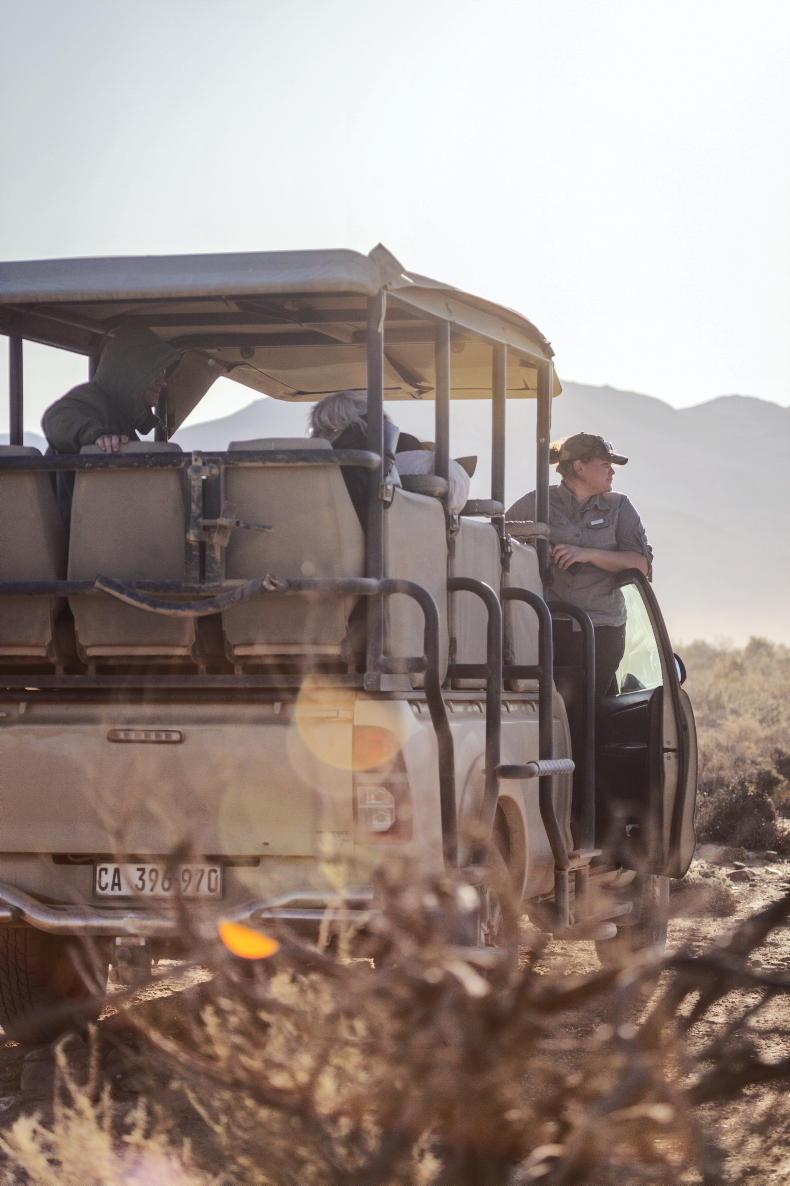
“So it was a community but then the drought came and people started moving to the cities for work and because they couldn’t farm anymore. It became a game reserve around 2007.”
COVID
There were and still are massive plans for the refurbishment of the reserve, with the owners having a great vision for what it could be, but as with so many things, when lockdown hit, investment was halted.
Storm explains that during the lockdown, unlike other reserves: “Searl didn’t retrench [terminate] even one staff member. He kept every single staff member on and ran the business.
“Obviously with animals on the property, there was a need to keep some people on but not all with no guests to care for. So the money that was intended for refurbishments, that really went into keeping the families alive during that time.
“Most of the staff have been here a long time. One of our cooks [has been here] for 30 years; she started her career on the farm and she’s still here.”
Driven by conservation
The French couple that had owned the property started the process of bringing animals back to the Karoo (the semi-desert natural region of South Africa), but it was the current owner that brought in most of the big five.
The ethos is conservation-driven, as is the owner, who was responsible for bringing the first white rhino back to the area in 250 years. Although poaching is much rarer in this part of Africa, a major poaching incident on the property in 2011 led to the formation of the Saving Private Rhino initiative, she reflects sadly.
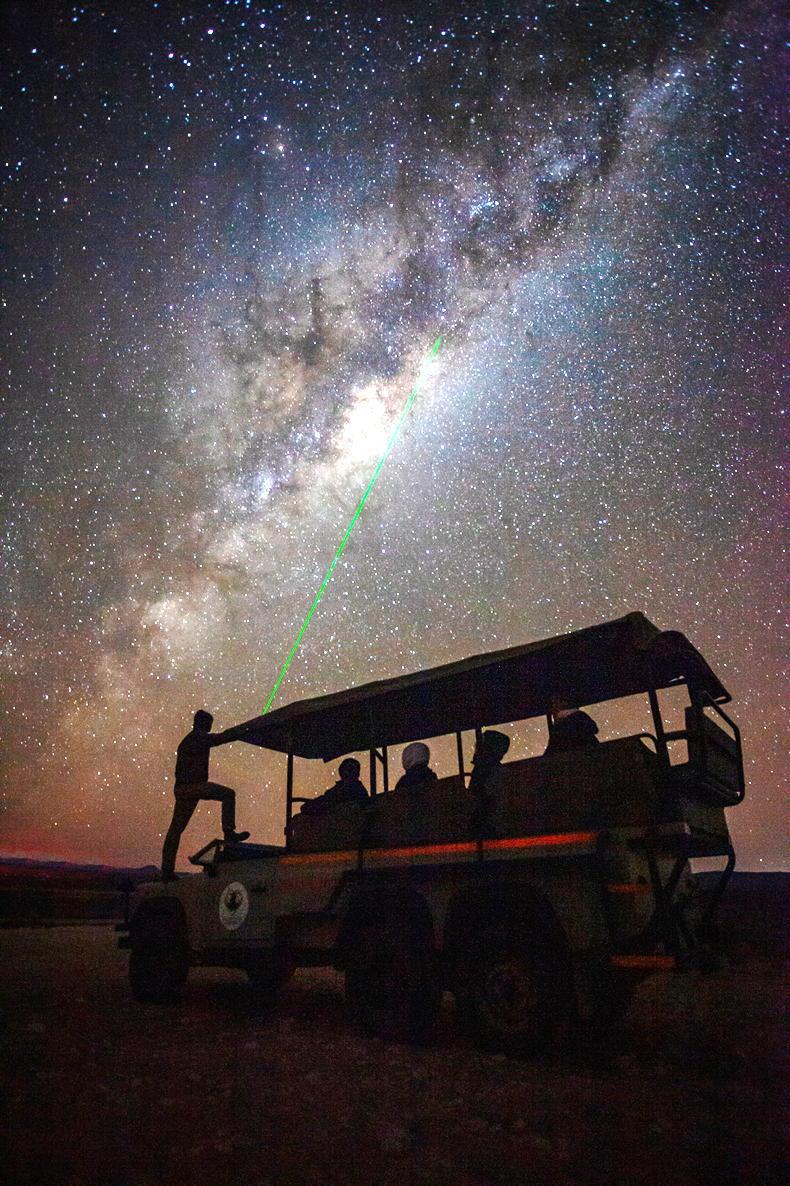
“We deal with very real threats like poachers. Searl stopped canned hunting in the area many years ago. This is the killing of an animal, reared for that purpose, in an enclosure. Searl has a war on poaching so he has zero tolerance and we have a phenomenal anti-poaching team here,” she says.
“We’ve got a beautiful baby rhino now. He’s going to be a lot of trouble when he’s bigger as he’s very strong. He likes to play with rocks and I know he gives the buffaloes a hard time even at such a small age.”
Cheetah conservation
“Everybody that works here is an animal lover and a nature conservationist. It’s a passion,” she says, with the cheetah conservation programme being at the centre of that.
A walk with the big cats is perhaps something that visitors would aspire to on a safari but in Inverdoorn there is a strict no-touch policy. This walking experience was replaced with the Cheetah education tour where guests learn about the rehabilitation programme.

The reserve is also home to a successful cheetah conservation project.
“Before Searl bought the property, there was a walk with the cheetahs and a lot of guest interaction but we cut that out and the focus now, which is much better for them, is to rehabilitate them to a point of getting them back into the wild. So although we do teach them to hunt, there is no interaction,” she explains.
There are different stages of the programme and while the cheetah run is a wonderful thing for the guests to see, Storm asserts that “it’s not really for the guests, it’s for the cheetahs to exercise and for their rehabilitation into the wild. So whether we have guests or not, we do a cheetah run every night.”
With regards to cheetahs, she explains, a really good age for releasing them is between four and six years old. However, in Inverdoorn, there are a number of older cheetahs that cannot be released due to injury or another issue, such as a kink in the tail that would make their survival in the wild difficult. For these animals, the reserve has become a sanctuary.
The number one priority for the Aquila Collection of safari experiences is to actually create a release site within the reserve but you need 400ha per cheetah whereas for a lion reserve, it’s only 300ha.
The irish connection
Her favourite author being Irish – Maeve Binchy – is not the only link Storm has to Ireland. She laughs as she tells Irish Country Living: “My grandmother met an Irish engineer here in South Africa in the 60s; he was building bridges and they became great friends. He owned a castle in Ireland called InisBeg and his name was Seamus. He wanted to marry my grandmother but she said no because his parting was on the wrong side.”
Storm, only for the hair, you could have been part Irish and living in a castle, just like the rest of us.
Stay and play
Inverdoorn Private Game Reserve is part of the Aquila Collection, situated in the Tankwa Karoo National Park, 60km from the town of Ceres and two and a half hours from Cape Town. It is just one of a number of properties in the Collection, which also consists of the Aquila Private Game Reserve and Spa, a four-star safari resort that spans over 10,000ha and the nearby Kuganha Tented Camp.
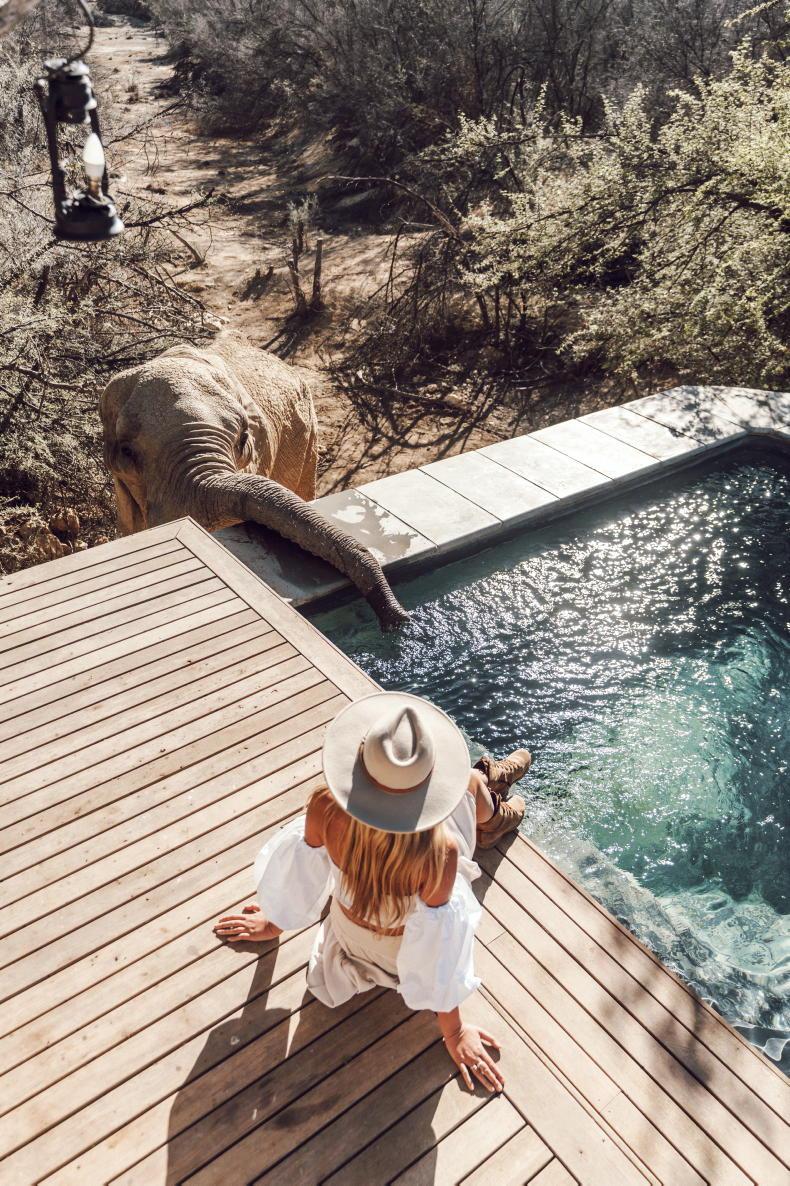
Most guests stay two nights, arriving in the afternoon. Storm outlines a general itinerary of the all-inclusive experience: “You go for lunch and settle into your room.
There is an afternoon game drive before dinner and the Karoo star experience. The second day has an early morning game drive with the afternoon in the spa or by the pool. Picnics are popular with honeymoon and anniversary couples and e-bikes or horses are available to take a guided tour with the rangers toward the mountains.”
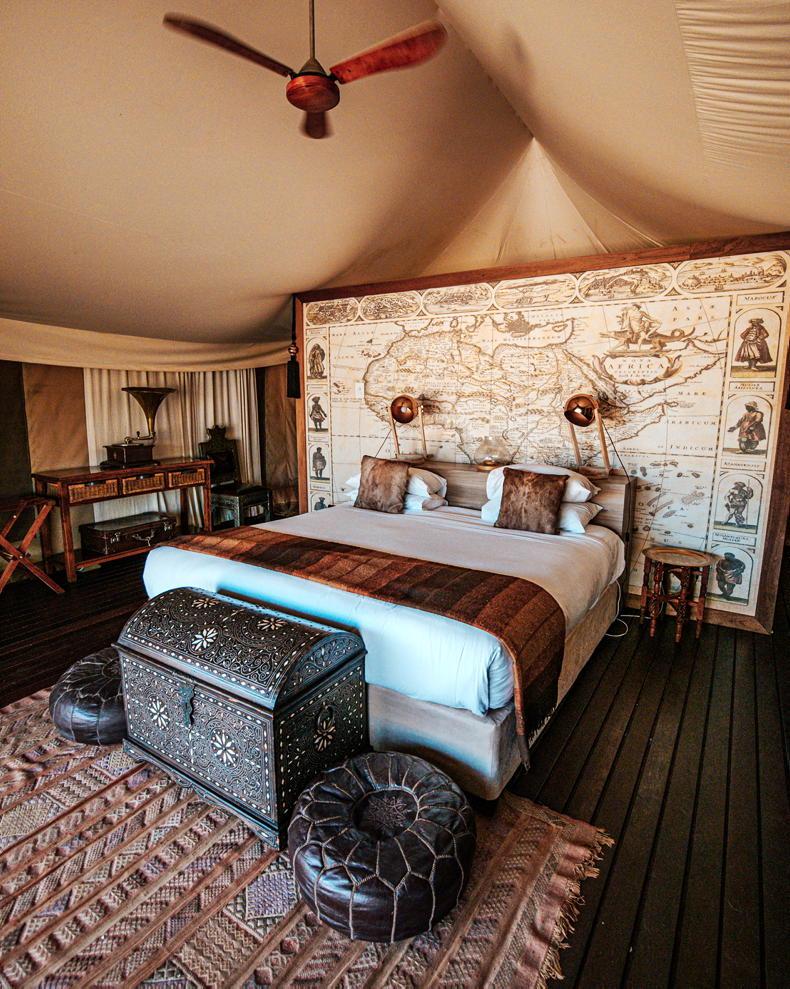
In South Africa, there is a grading rating with Inverdoorn having two different gradings. The five-star ambassador chalets face the mountain and in the evening you can sit on the rooftop enjoying a sundowner. The rest of the accommodation is divided between lodge rooms and chalets.

The 10 000 hectare private game reserve offers luxurious Big 5 safaris for overnight guests.
A Tankwa Chalet (mid-grade) for two people costs R6,600 (€326) per night full board in the low season rising to R9,180 (€454) in the high season.
Read more
Behind this thriving hotel business are bonds of love, peace and family
Holidaying at home: take a giant leap in Co Antrim
Most people have a bucket list and for most African trekkers, the term “Big Five” refers to the animals you hope to see from an open-topped safari vehicle on an African plain. The term “Big Five”, however, actually originally referred to the difficulty in the hunting, not seeing, of the lion, leopard, rhino, elephant and African buffalo. Recognised as dangerous, these five large African mammals remain a feat to be conquered by trophy hunters.
There are many large national parks across Africa accessed through tour companies, but if you are based in the South African cape, the Inverdoorn Private Game Reserve is one of the most accessible for solo traveller groups. During a visit, Irish Country Living sat down in this oasis with Storm de Lange, the general manager of the property, to talk about conservation and escaping to the desert.
Farmed for decades by a French couple, the lands after being transferred to their sons, were purchased in 2018 by Searl Derman, an avid conservationist and owner of the Aquila Collection of safari experiences.
Although based in one of the most arid regions of South Africa, with some areas receiving less than 100mm of average annual precipitation, there are beautiful cactus gardens around the safari lodge. Storm explains that “even eight years ago, this was all grass”, with the owners working to restore vegetation that can survive in the harsh conditions.
Suffice to say, it is hard to believe, with being effectively in a desert, that this property was for years the biggest fruit-producing farm in the southern hemisphere. At the turn of the 1900s, there were 2,000 people living on the property. There were onion fields, grapevines and apple orchards. There was a hospital and two police stations. The remains of these buildings are on the north side of the property, Storm laments.

“So it was a community but then the drought came and people started moving to the cities for work and because they couldn’t farm anymore. It became a game reserve around 2007.”
COVID
There were and still are massive plans for the refurbishment of the reserve, with the owners having a great vision for what it could be, but as with so many things, when lockdown hit, investment was halted.
Storm explains that during the lockdown, unlike other reserves: “Searl didn’t retrench [terminate] even one staff member. He kept every single staff member on and ran the business.
“Obviously with animals on the property, there was a need to keep some people on but not all with no guests to care for. So the money that was intended for refurbishments, that really went into keeping the families alive during that time.
“Most of the staff have been here a long time. One of our cooks [has been here] for 30 years; she started her career on the farm and she’s still here.”
Driven by conservation
The French couple that had owned the property started the process of bringing animals back to the Karoo (the semi-desert natural region of South Africa), but it was the current owner that brought in most of the big five.
The ethos is conservation-driven, as is the owner, who was responsible for bringing the first white rhino back to the area in 250 years. Although poaching is much rarer in this part of Africa, a major poaching incident on the property in 2011 led to the formation of the Saving Private Rhino initiative, she reflects sadly.

“We deal with very real threats like poachers. Searl stopped canned hunting in the area many years ago. This is the killing of an animal, reared for that purpose, in an enclosure. Searl has a war on poaching so he has zero tolerance and we have a phenomenal anti-poaching team here,” she says.
“We’ve got a beautiful baby rhino now. He’s going to be a lot of trouble when he’s bigger as he’s very strong. He likes to play with rocks and I know he gives the buffaloes a hard time even at such a small age.”
Cheetah conservation
“Everybody that works here is an animal lover and a nature conservationist. It’s a passion,” she says, with the cheetah conservation programme being at the centre of that.
A walk with the big cats is perhaps something that visitors would aspire to on a safari but in Inverdoorn there is a strict no-touch policy. This walking experience was replaced with the Cheetah education tour where guests learn about the rehabilitation programme.

The reserve is also home to a successful cheetah conservation project.
“Before Searl bought the property, there was a walk with the cheetahs and a lot of guest interaction but we cut that out and the focus now, which is much better for them, is to rehabilitate them to a point of getting them back into the wild. So although we do teach them to hunt, there is no interaction,” she explains.
There are different stages of the programme and while the cheetah run is a wonderful thing for the guests to see, Storm asserts that “it’s not really for the guests, it’s for the cheetahs to exercise and for their rehabilitation into the wild. So whether we have guests or not, we do a cheetah run every night.”
With regards to cheetahs, she explains, a really good age for releasing them is between four and six years old. However, in Inverdoorn, there are a number of older cheetahs that cannot be released due to injury or another issue, such as a kink in the tail that would make their survival in the wild difficult. For these animals, the reserve has become a sanctuary.
The number one priority for the Aquila Collection of safari experiences is to actually create a release site within the reserve but you need 400ha per cheetah whereas for a lion reserve, it’s only 300ha.
The irish connection
Her favourite author being Irish – Maeve Binchy – is not the only link Storm has to Ireland. She laughs as she tells Irish Country Living: “My grandmother met an Irish engineer here in South Africa in the 60s; he was building bridges and they became great friends. He owned a castle in Ireland called InisBeg and his name was Seamus. He wanted to marry my grandmother but she said no because his parting was on the wrong side.”
Storm, only for the hair, you could have been part Irish and living in a castle, just like the rest of us.
Stay and play
Inverdoorn Private Game Reserve is part of the Aquila Collection, situated in the Tankwa Karoo National Park, 60km from the town of Ceres and two and a half hours from Cape Town. It is just one of a number of properties in the Collection, which also consists of the Aquila Private Game Reserve and Spa, a four-star safari resort that spans over 10,000ha and the nearby Kuganha Tented Camp.

Most guests stay two nights, arriving in the afternoon. Storm outlines a general itinerary of the all-inclusive experience: “You go for lunch and settle into your room.
There is an afternoon game drive before dinner and the Karoo star experience. The second day has an early morning game drive with the afternoon in the spa or by the pool. Picnics are popular with honeymoon and anniversary couples and e-bikes or horses are available to take a guided tour with the rangers toward the mountains.”

In South Africa, there is a grading rating with Inverdoorn having two different gradings. The five-star ambassador chalets face the mountain and in the evening you can sit on the rooftop enjoying a sundowner. The rest of the accommodation is divided between lodge rooms and chalets.

The 10 000 hectare private game reserve offers luxurious Big 5 safaris for overnight guests.
A Tankwa Chalet (mid-grade) for two people costs R6,600 (€326) per night full board in the low season rising to R9,180 (€454) in the high season.
Read more
Behind this thriving hotel business are bonds of love, peace and family
Holidaying at home: take a giant leap in Co Antrim













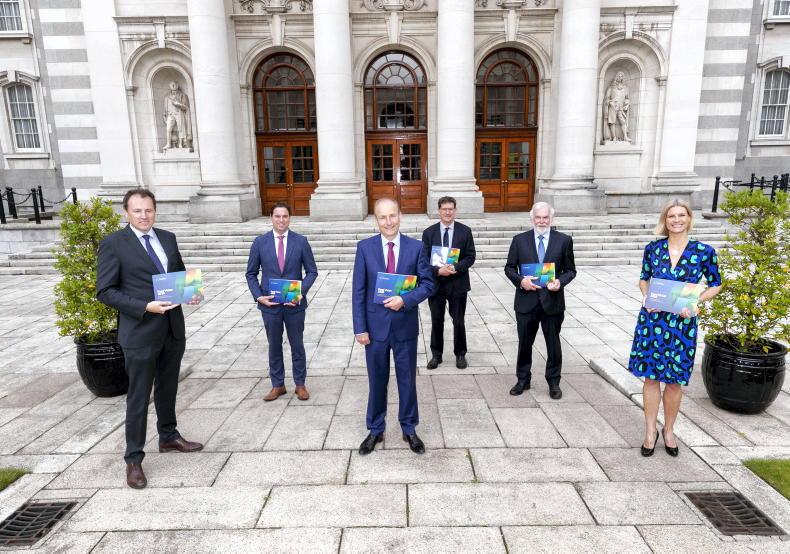
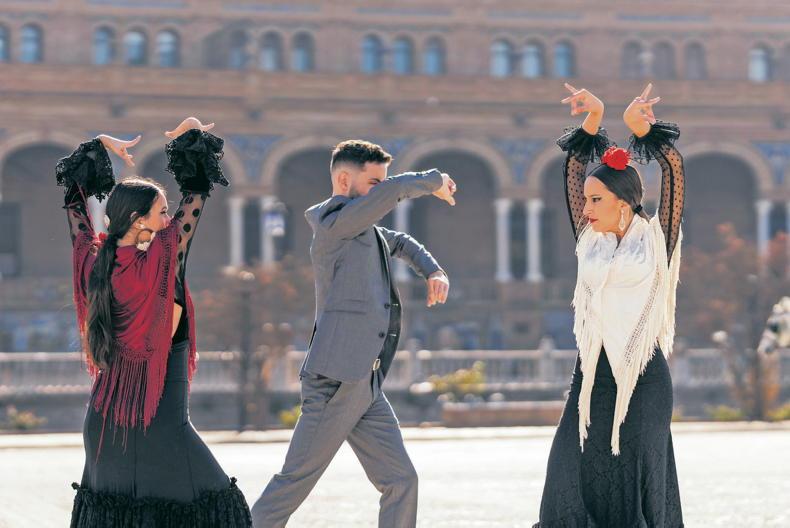
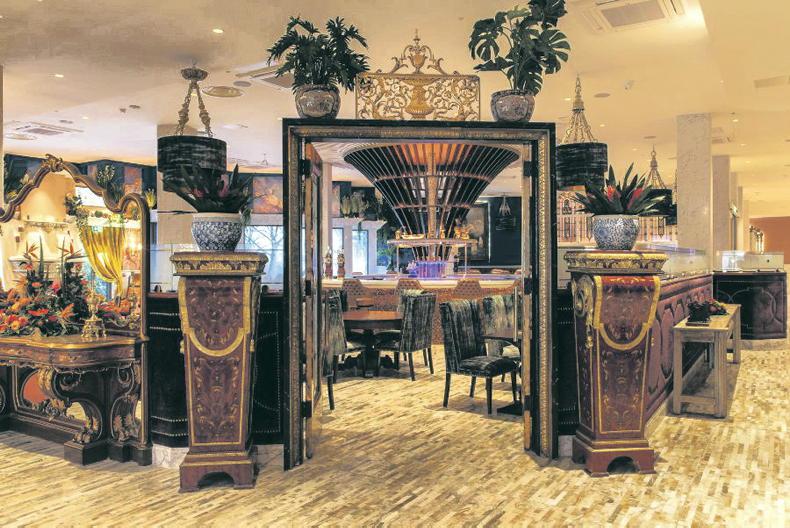
SHARING OPTIONS